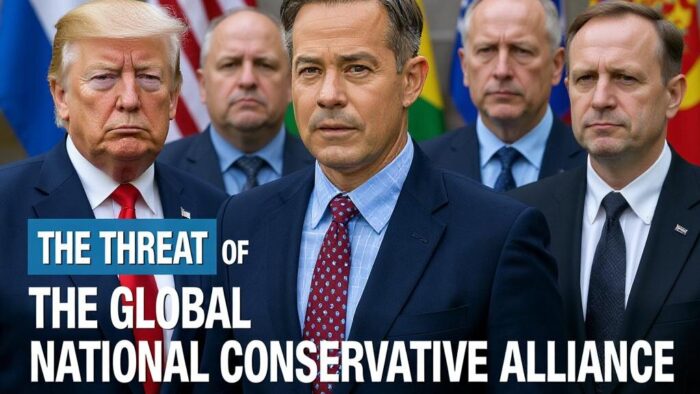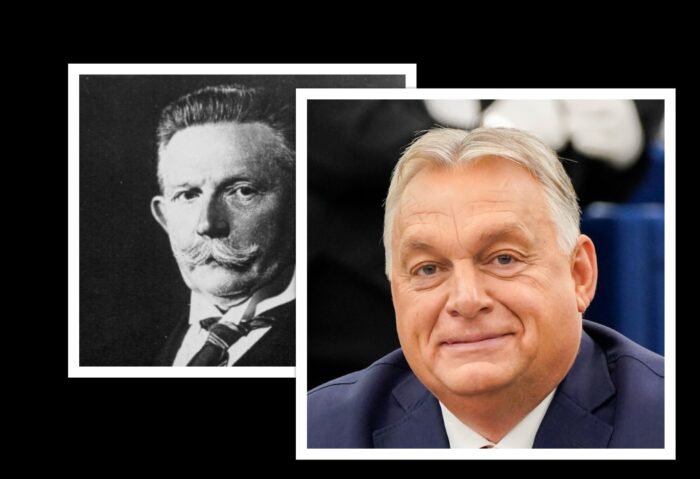The president of the United States is deploying masked troops to the streets of blue cities, working to put friendly billionaires in charge of the media environment, and attempting to jail his personal enemies. Can any democracy come back from this? Earlier this year, two teams of researchers published papers trying to answer this exact question — and came to seemingly opposite conclusions. Both papers focused on what they call “democratic U‑turns:” where a country starts out as a democracy, moves toward authoritarianism, and then quickly recovers. The first team’s conclusions were optimistic: They identified 102 U‑turn cases since 1900 and found that, in 90 percent of them, the result was “restored or even improved levels of democracy.” The second team focused on 21 recent cases and inverted the findings — concluding that “nearly 90 percent” of alleged U‑turns were short-lived mirages.
Read more: https://www.vox.com/politics/464459/trump-american-democracy-u-turns [paywall]
Key Points
- Modern democratic backsliding happens through law and political maneuvering rather than coups, with elected authoritarians changing rules to create competitive authoritarian regimes where elections occur under unfair conditions like Viktor Orbán did in Hungary.
- Research by Cheeseman, Cyr, and Bianchi found that of 21 post-1994 democratic U‑turn cases, 19 countries experienced another decline within five years, with even exceptions like Malawi and Mali eventually becoming non-democratic again.
- Political scientist Dan Slater coined the term democratic careening to describe struggling democracies characterized by endemic unsettledness and rapid ricocheting between governing models that may temporarily cease functioning but not vanish entirely.
- Researcher Marina Nord warns that even if America experiences a U‑turn upon Trump’s departure, the forces that made Trump possible will remain open to exploitation by future political leaders, keeping democracy at risk without solving underlying causes.
Trump and the Global National Conservative Alliance
The Trump administration plays a leading role in the Global National Conservative Alliance (GNCA), uniting right-wing movements worldwide under shared principles of national sovereignty, cultural identity, and opposition to global institutions. This movement represents a significant shift away from Reagan-era conservatism toward nationalist and protectionist governance models that prioritize Christian values and immigration restriction over free markets and global leadership.
Israeli political theorist Yoram Hazony provides the intellectual framework for this movement through National Conservatism conferences, where Trump appointees, including JD Vance, have developed their political philosophy around mutual loyalty between families and tribes rather than abstract ideals. The conferences have rapidly become focal points for reshaping the transatlantic right, bringing together figures like Missouri Senator Eric Schmitt, who declared that America belongs to “sons and daughters of the Christian pilgrims.” At the same time, panels discussed overturning same-sex marriage and attacking universities.
Hungary serves as the movement’s European hub through Budapest CPAC gatherings, where Viktor Orbán proclaimed Hungary had been “completely healed” of progressive dominance and urged attendees to “take back the institutions in Washington and Brussels.” These conferences have featured controversial figures, including known Hungarian racists, alongside Tucker Carlson, Steve Bannon, and virtual addresses from Trump himself, creating what observers describe as a platform for shared hostility to liberalism, multiculturalism, and LGBTQ+ rights rather than democratic values.
The Heritage Foundation has extended this agenda to Europe through closed-door workshops with Hungarian and Polish partners discussing proposals to dismantle the European Commission and Court of Justice. Heritage president Kevin Roberts has explicitly called for Europeans to “reclaim sovereignty” from Brussels while working with government-backed organizations like Hungary’s MCC to transform EU governance structures into a looser confederation that would weaken democratic institutions and climate policies.
External References:
— Toward a Nationalist Internationalism: The Case for Building a National Conservative Alliance
— Project 2025: Trumpism and the New Conservatism
— The Global Rise of Conservatism: A New Political Power Shift
Disclaimer:
The Global Influence Operations Report (GIOR) utilizes AI throughout the posting process, including the generation of summaries for news items, introductions, key points, and, often, the “context” section. We recommend verifying all information before use. Additionally, all images are generated using AI and are intended solely for illustrative purposes. While they represent the events or individuals discussed, they should not be interpreted as real-world photography.










